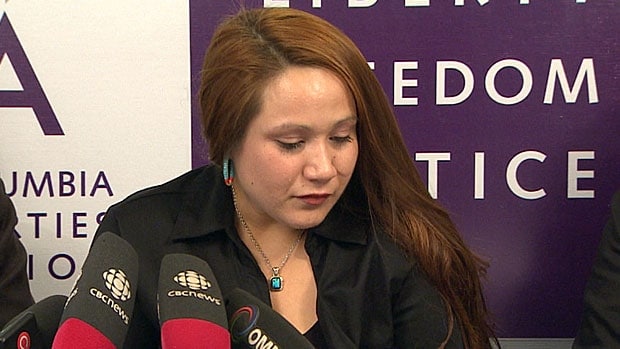
BobbyLee Worm
Stacey Lannert grew up in the middle of the United States, in Missouri. Her father sexually abused her, starting when she was eight years old. On July 5, 1990, at the age of 18, Lannert walked into her father’s bedroom and shot him, twice, killing him. The `final straw’ was her father raping her younger sister. Two years later, in December 1992, Lannert was sentenced to life in prison without parole. In January 2009, at the age of 36, Stacey Lannert was released, thanks to the outgoing Missouri governor, Matt Blunt, who commuted her sentence: “After eighteen years, I was allowed to be Stacey Ann Lannert instead of Offender #85704. I’ll never completely shed the number, but I did start over.”
Wilbertine Berkley would like to start over as well, but the State of Florida has other plans.
In the United States, over five million people cannot vote because of past criminal offenses. One million of those people live in Florida. In one state alone, a million people who have served their time are disenfranchised. Of that million, almost 300,000 are African American.
Wilbertine Berkley is a Black woman in Florida who struggled with drug abuse, spent time in jail, turned her life around, joined a program, got clean, went to college, and gave back to the community in volunteer work. She was awarded the Presidential Volunteer Award. She did everything she was supposed to do and more, and the State response has been to `alienate’ her, to identify her as frozen in the past. Her good work counts for nothing.
Tomorrow, Wednesday, March 9, 2011, the Florida Board of Executive Clemency will vote on whether to make it even more difficult for former prisoners to be re-instated. The proposed change would include a five-year mandatory waiting period before being able to apply for `clemency’. Florida’s Attorney General sees this as a fight against entitlements: “I believe that every convicted felon must actively apply for the restoration of his or her civil rights and that there should be a mandatory waiting period before applying. The restoration of civil rights for any felon must be earned, it is not an entitlement…The burden of restoring civil rights should not fall on the shoulders of government, but rather it should rest on the individual whose actions resulted in those rights being taken in the first place.”
Wilbertine Berkley wants and deserves respect for who she is today, for who she has become, for what she has made of herself and of her world. She made a mistake. She worked hard. She paid her debt.
But for Black women, the debt of incarceration is the gift that keeps on giving.
Ask BobbyLee Worm. BobbyLee Worm is a 24 year old aboriginal woman prisoner in the Fraser Valley Institution, a Canadian federal prison that describes itself as “a multi-level facility for women…. Programs focus on the particular needs of women offenders, including Aboriginal inmates and those with psychological problems or learning disabilities.”
One of these particular programs is called Management Protocol.
Management Protocol is “a special program for handling women prisoners who have been involved in a major violent incident or threat of incident while in the system.” Established in 2005, seven women prisoners have been on Management Protocol. All seven have been aboriginal women.
Management Protocol is open ended, unrestricted solitary confinement. Twenty- three hours a day for as long as the prison deems `adequate’ and `necessary.’ How does one leave Management Protocol? One earns one’s way out. How does one earn? What are the wages? No one knows.
BobbyLee Worm entered prison June 7, 2006. She is a first time offender, sentenced to six years, four months. She has spent the majority of her time in segregation, paying off the debt of years of physical, emotional and sexual abuse and trauma. For Black women, the debt of incarceration is the gift that keeps on giving.
These stories are typical of the conditions of women, and girl, prisoners around the world. Girls whose only `crime’ is being the daughters of asylum seekers, or of being born into oppressive communities, are stuck into detention centers, such as the Inverbrackie Detention Center in Australia. Once there, they suffer nightmares, turn violent, and refuse to eat. What is their crime, what is the debt to society that must be paid? They were born in Iran, they sailed to Australia.
Around the world, women of color, Black women, and their daughters, sit in prisons. Their debt grows incrementally by the second. Their numbers grow incrementally by the day. Today is March 8, 2011, International Women’s Day. These women prisoners haunt International Women’s Day.
(Photo Credit: British Columbia Civil Liberties Association)